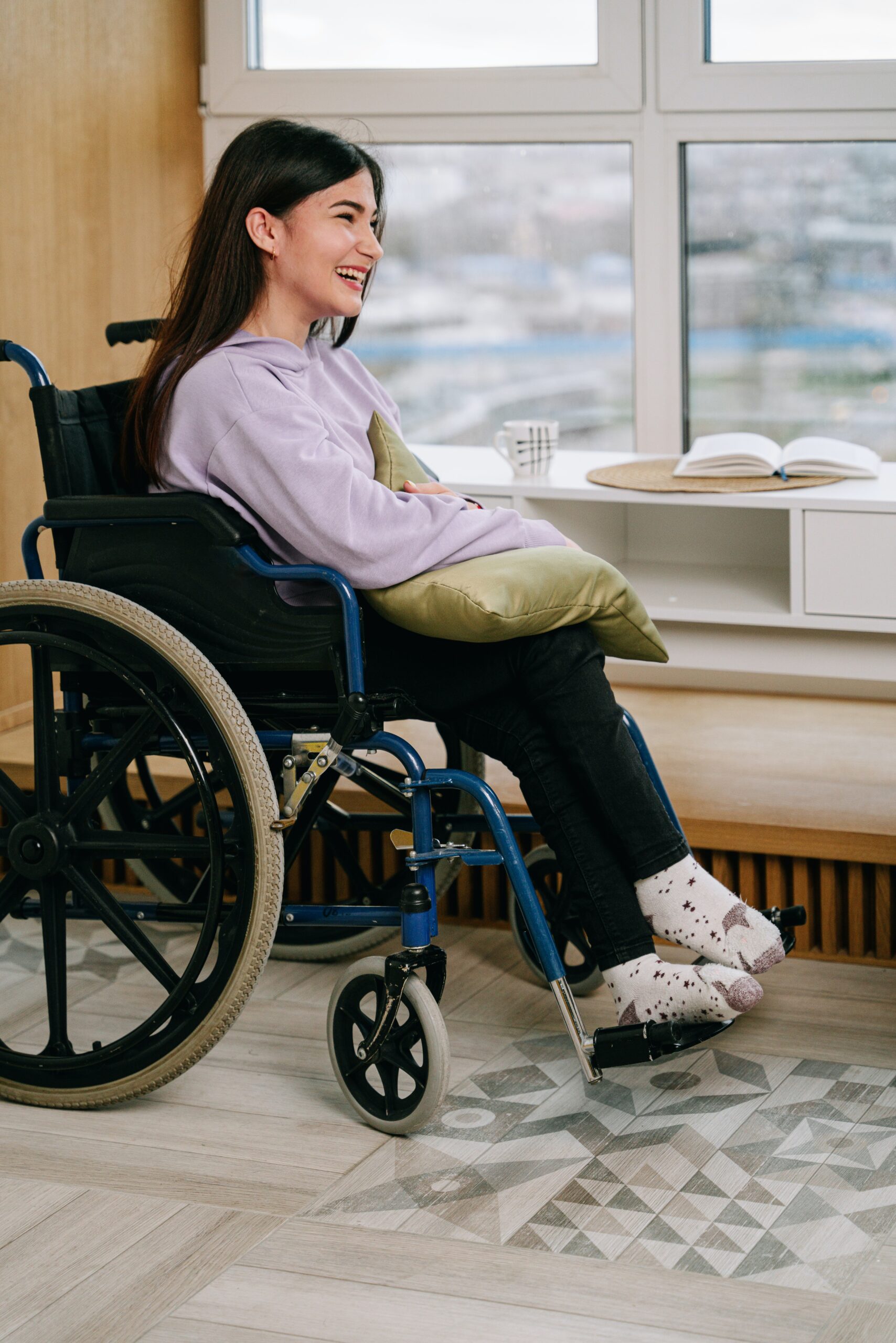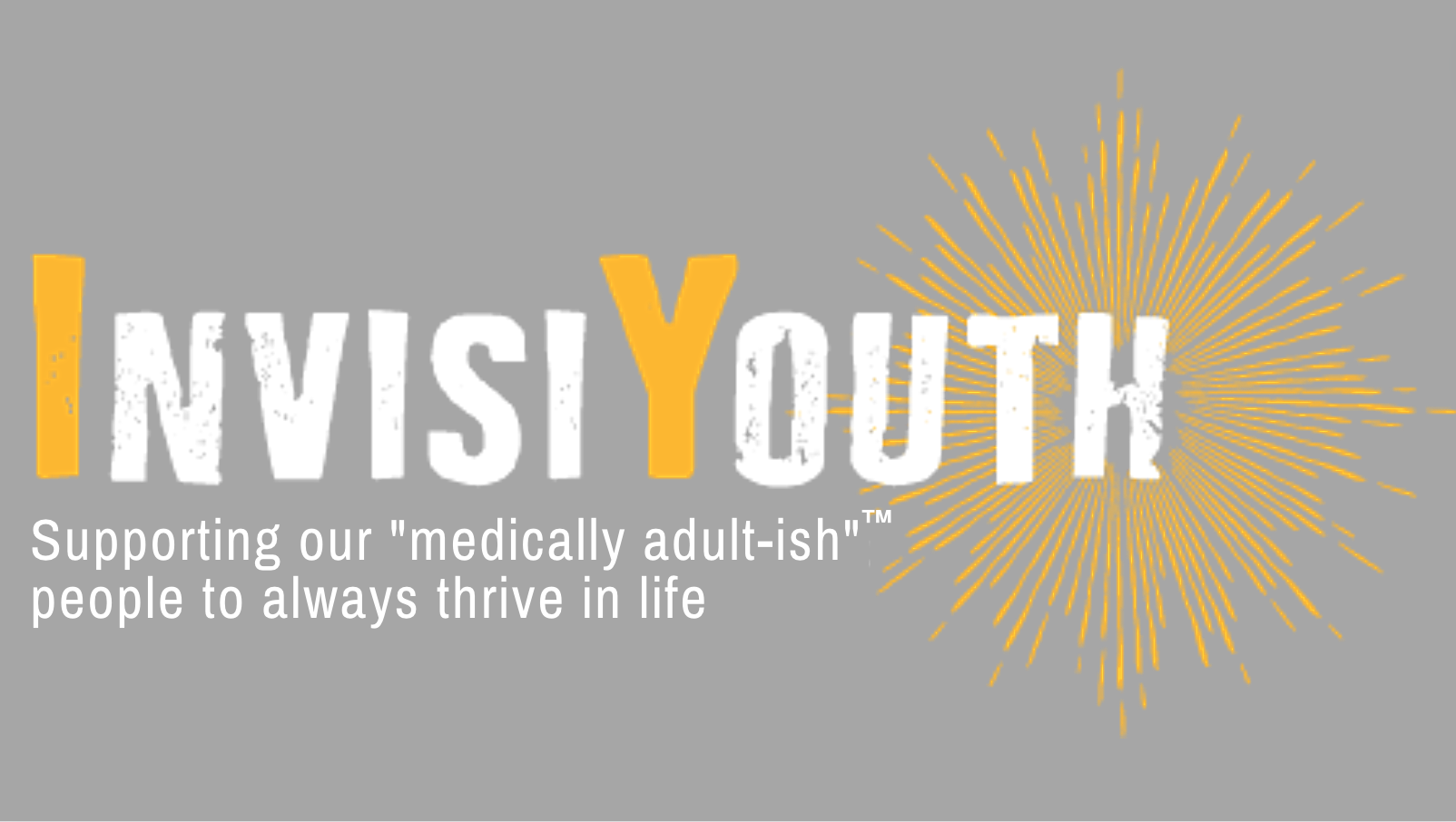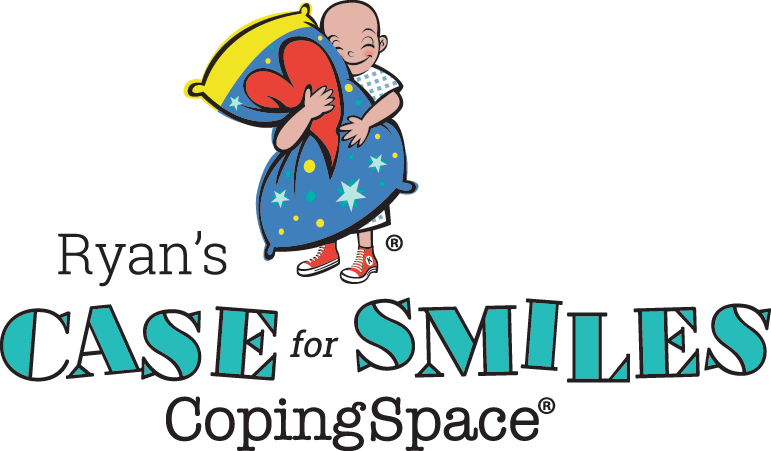BLOG
Being a Teen and Young Adult Patient in the Gap Between Pediatrics and Adult Healthcare: How to Support Teenagers with Illnesses and Injuries
By Dominique Viel, Founder and Executive Director of InvisiYouth Charity
 There is a true gap in healthcare for teenagers and young adults, ages 13-25 years old. This lack of a medical ‘place of belonging’ can be extremely problematic for many young people as they deal with various chronic illnesses and injuries.
There is a true gap in healthcare for teenagers and young adults, ages 13-25 years old. This lack of a medical ‘place of belonging’ can be extremely problematic for many young people as they deal with various chronic illnesses and injuries.
Specifically, teens with chronic illnesses and injuries struggle with the relationship they have with their medical teams and the role they play as a patient. For some, they have been followed by a team of pediatric doctors since they were infants. The shift from childcare to teenage-care can be challenging. As patients get older, the pediatric medical settings remains the same. Soon it doesn’t fit what these young adults really need.
Yet, when teens transition into adult healthcare, they are too young to easily handle what adults twice their age are managing. But this process isn’t done alone. Often parents and caregivers are involved. They need to know how to best help teens and young adults with chronic illnesses and injuries as they mutually navigate this timeframe.
Challenges Facing Teen and Young Adult Patients with Chronic Illnesses
By definition, pediatric healthcare is for children. But teens, by their own definition, are not like children. The older that teen/young adult patients get in pediatrics, the more they don’t fit in.
Teens are coming into their own, learning how to harness their own voice and discovering their passions and opinions. While as young kids, they needed their parents, guardians, and caregivers to fully assist them in the doctor’s office, as teens, they have their own voice and opinion on their treatment plans.
 Teens and young adults also fully understand what they are missing out on in life – everything that has been forced to change and all the clubs, sports, relationships and activities they’ve had to give up for their health. Due to this understanding, teens are different from their younger patients, and they dwell on all the ways their illnesses and injuries have hurt their ‘normal’ teenage lifestyle.
Teens and young adults also fully understand what they are missing out on in life – everything that has been forced to change and all the clubs, sports, relationships and activities they’ve had to give up for their health. Due to this understanding, teens are different from their younger patients, and they dwell on all the ways their illnesses and injuries have hurt their ‘normal’ teenage lifestyle.
Despite their growing maturity and independence, in pediatric medical settings, teens and young adults often lack the encouragement to have a voice in their healthcare and to play an active role in creating their treatment plans. Unfortunately many deal with what my nonprofit, InvisiYouth Charity, defines as ‘the Ping-Pong Effect. This is when doctors pass all their questions and commentary over the teen patients to the guardians, completely disregarding what the teen really wants or thinks about their treatment.
When this happens, young adults do not learn how to be their own advocate or get to explain how the treatments really affect their overall life. That can easily place a lot the burden on the caregivers, who do not usually understand how to best help their teens enter the next phase of their healthcare journey.
How to Help Teens and Young Adults With Chronic Illnesses and Injuries
What’s important for teens and young adults with severe illnesses and injuries is for caregivers to pay attention to increasing their independence while still providing guidance. This allows for a gradual transition into greater decision-making, and builds critical skills before the full transition to adult healthcare. It also offers caregivers the comfort of still being involved in critical medical decisions and assurance that their child is receiving quality care.
Teach Teen Patients to Communicate Effectively
 The biggest way for teens and young adults to begin to take charge of their medical journey is by developing communication techniques that empower them, but also support their supportive pillars: the parents, guardians and caregivers that are still part of their daily routine. At InvisiYouth, we call this the “Cushioned Second Thought Method”. In this method, teens react to the guidance and ideas of their parents while still being mindful of their tone, so the conversations are now being led by sensible thoughts and not gut reactions and emotions.
The biggest way for teens and young adults to begin to take charge of their medical journey is by developing communication techniques that empower them, but also support their supportive pillars: the parents, guardians and caregivers that are still part of their daily routine. At InvisiYouth, we call this the “Cushioned Second Thought Method”. In this method, teens react to the guidance and ideas of their parents while still being mindful of their tone, so the conversations are now being led by sensible thoughts and not gut reactions and emotions.
Healthy communication is one of the biggest things that can create lasting strength for both teens growing into adult healthcare, and the parental figures trying to empower them to get there safely with support along the way. When young adult patients can communicate openly their opinions and goals in their healthcare treatments, even when they might differ from parental figures or medical teams’, they become part of the conversation and the solutions that can be placed in front of them.
Gradually Incorporate Teens with Chronic Illnesses into Decision-Making
 For parents, guardians and caregivers that same emphasis on communication is vital to empower their teens at this point in life. So much of the healthcare
For parents, guardians and caregivers that same emphasis on communication is vital to empower their teens at this point in life. So much of the healthcare
transition structure isn’t made to be a gradual experience, Oftentimes it is an abrupt switch from your total involvement and decision-making to your teen’s total decision-making. What’s really important for caregivers is that you gradually include your child (no matter their age!) into their healthcare decisions.
Let them watch you as you fill out health insurance paperwork so they know where group numbers or contacts are found. Talk with them openly ahead of doctor visits about what they want to get out of that visit, or what issues they really want addressed. Then be that back-up cheerleader that encourages your teen to speak up for themselves if their main areas of concern aren’t being discussed. If a doctor is doing that “Ping-Pong Effect” we were talking about, don’t give your immediate thoughts, but look to your teen and ask for their feelings first.
Nurture Independence, Control and Choice for Young Adult Patients
 A crucial reminder for caregivers navigating this time is that there is a great need to nurture independence, control and choice whenever possible. With chronic illness, disability or life-threatening illnesses, those three factors aren’t often available because health comes first. So when your teen is given moments to have a choice on treatment options, to control how they share their opinions, or is able to independently speak for themselves, they become even more empowered in their personal healthcare advocacy. This will set your teen up to be able to tackle the adult world with confidence.
A crucial reminder for caregivers navigating this time is that there is a great need to nurture independence, control and choice whenever possible. With chronic illness, disability or life-threatening illnesses, those three factors aren’t often available because health comes first. So when your teen is given moments to have a choice on treatment options, to control how they share their opinions, or is able to independently speak for themselves, they become even more empowered in their personal healthcare advocacy. This will set your teen up to be able to tackle the adult world with confidence.
Because something else is crucial to remember: just because a teen is moving into adult healthcare doesn’t mean parents still hold no role in their health journeys. They can be just as involved as they were beforehand as the supportive caregivers that they are, instead of being the ultimate decision-makers.
With these tips and communication techniques, you and your teen or young adult child will be on the path to a safe, empowering medical journey, while building a stronger, trusting relationship. A win-win-win for you, your child and their medical team.
Want more advice and information on how to support teens with cancer, chronic illnesses or injuries? Visit the Teenagers page of CopingSpace.org and check out our podcast episode with Dominique on InvisiYouth Chat Sessions available o Apple, YouTube and Spotify.
**Statements on this blog reflect the author’s personal opinion and do not represent the views of Ryan’s Case for Smiles. They are also not to be viewed as personal medical advice, but rather for the purpose of general knowledge. The reader should speak to their healthcare team, or their child’s, for medical advice.**
 About the Author: Dominique Viel (she/her) is Founder and Executive Director of the international nonprofit, InvisiYouth Charity, an organization that helps teens and young adults with any chronic illnesses and disabilities (both physical and mental health-related) gain the right life-improving teachings, virtual resources, and interactive activism to learn how to keep living life and thrive with any health struggles. Established in 2015, it was inspired by her own experiences as an injured teen competitive tennis player that resulted in her diagnosis of a neurovascular condition, growing up with chronic illnesses, and navigating the healthcare world. It is this personal passion that allowed Dominique to use her many years of experience as a patient advocate and public speaker in children’s hospitals and schools to tailor the InvisiYouth mission so that all young people, their families and support networks, and those in the medical community, understand how to best support, advocate and empower young people to live their most fulfilled
About the Author: Dominique Viel (she/her) is Founder and Executive Director of the international nonprofit, InvisiYouth Charity, an organization that helps teens and young adults with any chronic illnesses and disabilities (both physical and mental health-related) gain the right life-improving teachings, virtual resources, and interactive activism to learn how to keep living life and thrive with any health struggles. Established in 2015, it was inspired by her own experiences as an injured teen competitive tennis player that resulted in her diagnosis of a neurovascular condition, growing up with chronic illnesses, and navigating the healthcare world. It is this personal passion that allowed Dominique to use her many years of experience as a patient advocate and public speaker in children’s hospitals and schools to tailor the InvisiYouth mission so that all young people, their families and support networks, and those in the medical community, understand how to best support, advocate and empower young people to live their most fulfilled  lives possible so they no long live with the mindset of ‘waiting for the cure’ to find success and joy.
lives possible so they no long live with the mindset of ‘waiting for the cure’ to find success and joy.
To learn more, visit www.invisiyouthcharity.com and follow InvisiYouth on Facebook, Instagram. Twitter and YouTube @invisiyouth.
